AUGUST 2021 Blues Vol 37 No. 8
- Text
- Police
- Health
- Hennessey
- Galveston
- Cop
- Award
- Letters
- Editorial
- Fbi
- Fbi
- Policeman
- Story
- Equusearch
- Miller
- Equusearch
Passion for the Job -
Passion for the Job - ‘I didn’t kill him – and nobody cared.’ Here’s how the prevalence of deadly force opportunity in ordinary police experience can inform training. Even with the proliferation of videos of police officers in action, there is a tremendous amount of drama in policing that never sees the light of day. I recall my closest encounter with deadly force involved a domestic call, a drunk with a large knife and my trigger squeeze being prevented by the appearance of a toddler in the line of fire. I remember finally getting behind the wheel of my patrol car and gaining control of my breathing. The report was filed at the station, and then I was on to the next call. Based on my research, similar scenarios happen routinely for law enforcement. My own survey of over 200 police officers that I reported at the 2009 International Association of Chiefs of Police conference in Denver was confirmed by a report in the FBI Law Enforcement Bulletin (LEB) in 2010. As the LEB article reports “approximately 70 percent of the sample of police officers had been in a situation where they legally could have fired their weapon during a critical incident but chose not to.” NO RESEARCH ON SUCCESS As I have lamented often, while the research on officers killed in the line of duty and on suspects killed by police is substantial, there is little data on near misses and shots not fired. Deaths in police shootings are, despite popular belief, rare events. As such they may not provide as much helpful information as studies of the much more frequent occurrence of officer survival and suspects’ live apprehension. The recent Chicago policy requiring officers to report by radio when they point a gun at someone has potential for helpful research. Although the policy is seen as potentially punitive, the opportunity to examine those in- cidents could provide valuable information to researchers for officer safety and training. TRAINING IMPLICATIONS OF DEADLY FORCE DECISIONS As part of firearms and deadly force training, most officers and cadets will hear that taking a life is a rare event that is unlikely to happen but that they must prepare for it. A more realistic narrative would be that an officer will make deadly force decisions multiple times in a career or even on a single shift. In recent decades, police firearms training has moved from mere target marksmanship to practice in decision-making to scenario-based integration of accuracy and decision-making. The good news about the frequency of shoot-don’t-shoot situations in real life is that almost any police department has enough incidents to develop the data for their own study. Answering the question of what factors tip the scales toward pulling the trigger is achievable for individual agencies. USING LOCAL RESEARCH TO GUIDE USE OF FORCE POLICY There is a growing emphasis on law enforcement agencies doing their own research. The days of small departments relying on studies from large agencies with the resources to pay for research or attract grants may be waning. Many officers and administrators have advanced degrees that required using research methods. Collaboration with area colleges or a sharp intern can yield helpful guidance on creating a viable study. Developing a comprehensive and ethically sound research program isn’t rocket science, but it is science. Getting a valid and supportable outcome and analysis of data may result in new policies or new training processes. The outcome might also cast doubt on current policy and training. Therefore, the documentation of methodology and analysis could end up being an issue in the legal defense of an officer’s actions. Subject matter expert review of the research will help validate the findings and guide policy makers. AFTER ACTION Shift briefings are routine in departments across the country but debriefs get much less attention. Debriefs mainly happen after an event when those involved just want to get their paperwork done and go home. There may be fears of discussing a case that may be controversial. Debriefs can degrade into an attaboy session or an embarrassing finger-pointing session. They are also too often saved for “big” events so the potential lessons to be learned for “ordinary” events go unexamined. As we now realize, deciding to point a firearm or pull a trigger is quite ordinary and should be examined. Even if there is no intentional research on how your officers navigated a deadly force situation with no shots fired, creating a culture of peer learning can bring individual experiences into the learning experiences of the entire department. Supervisors, leaders and trainers can benefit from the ordinary drama that no one else knows or cares about. About the author: Joel Shults operates Street Smart Training and is the founder of the National Center for Police Advocacy. He retired as Chief of Police in Colorado. This editorial will be rather difficult to write. I’m quite sure you’ll find it rather difficult to digest. But this needs to be talked about. It needs to be brought out into the light, from the darkness of hidden truth. When a law enforcement officer dies in the line of duty, he or she is provided a state funeral. 21-gun salute, TAPS, bag pipes, everything. And that’s rightfully so. What I call your attention to is those officers who are seriously injured and survive their grievous injuries. Whether by gunfire, a blade, a violent and relentless assault or motor vehicle car crash. Those officers and their families are taxed with the steady influx of their “regular” bills, compounded by the arrival of all the medical bills. Then to add insult to injury, workers comp denies tests and medications time and time again, citing, not within their responsibility. Department heads defer to their city or county officials for “guidance” in such circumstances and are subsequently, released from all blame. Or are they? As a department, how can any of you just stand by and watch a member of your team, your family lay there, severely injured, doing exactly KeyWarden is the Texas distributor of Morse Watchmans industry-leading key and asset management systems. We are actively involved in the Texas Law Enforcement community as a founding member of the East Texas 100 club, and corporate members of the North Texas Police Chiefs Association, the East Texas Police Chiefs Association, the High Plains Police Chiefs Association, and the Central Texas Police Chiefs Association. We are proud to participate in the TEXAS SCHOOL DISTRICT POLICE CHIEFS ASSOCIATION CONFERENCE. THE KEYWATCHER TOUCH SYSTEM is deployed in the law enforcement environment to: • Securely dispense track and audit the use of keys to: vehicles, facilities, lockers and other high-value assets. • Prevent unauthorized staff from driving specialist vehicles, or racking up miles on the newer fleet while older units sit idle. • Allow management to compel the use of vehicle pools rather than staff controlling the keys to particular units. • Quicker and more efficient shift changes. • Control the keys to facilities and mandate accountability. 19015 Gentle Knoll • Managing and controlling access to assets stored in lockers. San Antonio, Texas 78258 10 The BLUES POLICE MAGAZINE As a Texas-based company, we provide on site evaluation, implementation, training and support of the Office: The BLUES 830-214-0867 POLICE MAGAZINE Fax: 775-898-1807 11 KeyWatcher System. We are also a member of BuyBoard and offer discounted pricing and ease of purchase. www.keywarden.com - click here to email us
- Page 1 and 2: The BLUES POLICE MAGAZINE 1
- Page 4: The BLUES presents Tim Miller, with
- Page 8: the parents of the missing child. H
- Page 14: Harris Co. Criminal Dist. Court Jud
- Page 18: Austin Announces Finalists for Chie
- Page 22: 5 Things to Know About Incels Incel
- Page 26: Boy battling cancer becomes honorar
- Page 30: TIM MILLER President & Founder of T
- Page 34: TIM MILLER 2021 BLUES Police Magazi
- Page 38: TEXAS EQUUSEARCH “That determinat
- Page 42: “The first person I would ask if
- Page 46: capabilities. Certainly, somebody d
- Page 50: WHO WANTS TO BE A COP? New series t
- Page 54: PART 1 The New Recruits “I want t
- Page 58: PART 2 The Pepper Spray “This cou
- Page 62:
She stands still for a second, shak
- Page 66:
She worked at Burger King, Cold Sto
- Page 70:
“God sent me to bring you back ho
- Page 74:
74 The BLUES POLICE MAGAZINE The BL
- Page 78:
2021 Annual Conference Schedule Sat
- Page 82:
Katie’s Seafood House 2000 Wharf
- Page 86:
Leadership Starts with You “We ha
- Page 90:
Photography Professional Video Prof
- Page 94:
unning 4 heroes Total Miles Run in
- Page 98:
family” - others who have lost a
- Page 102:
Sergeant Jeremy Brown Clark County
- Page 106:
Yes, you read correctly. Mr. Outdoo
- Page 110:
MARKET PLACE - DISCOUNTS FOR FIRST
- Page 114:
114 The BLUES POLICE MAGAZINE The B
- Page 118:
JOIN OUR TEAM WALKER COUNTY SHERIFF
- Page 122:
MAKE A DIFFERENCE IN YOUR COMMUNITY
- Page 126:
Come join the Plano Police Departme
Inappropriate
Loading...
Mail this publication
Loading...
Embed
Loading...

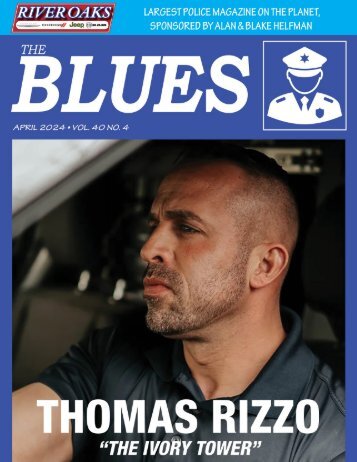
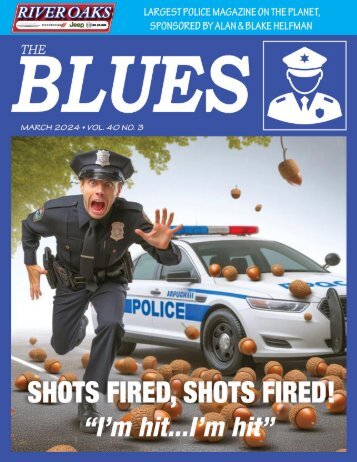

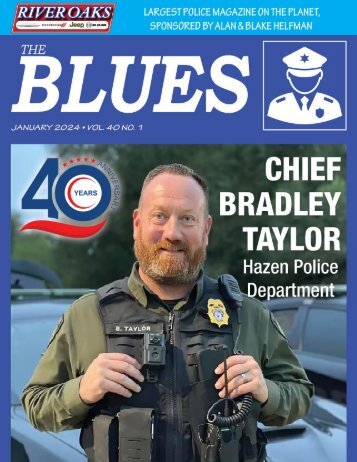
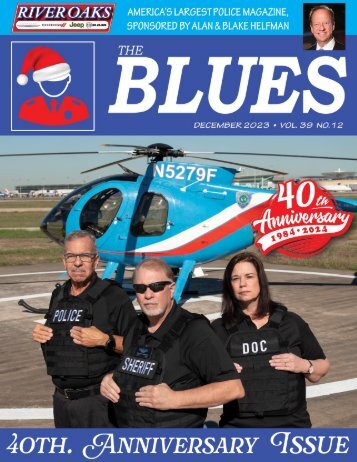
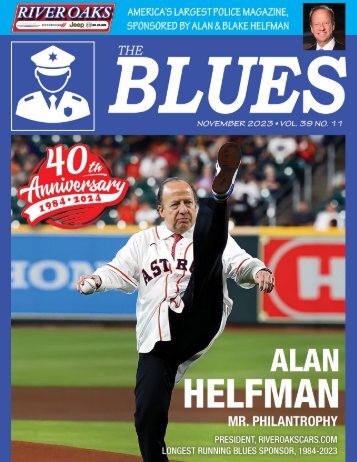
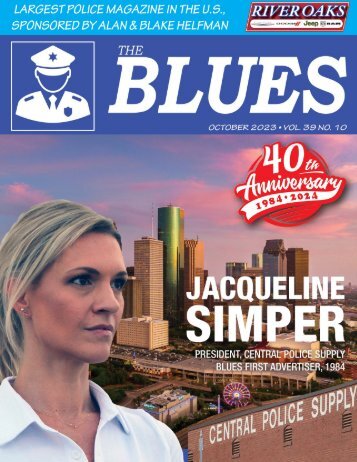
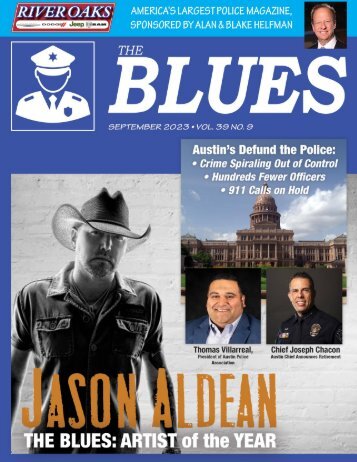
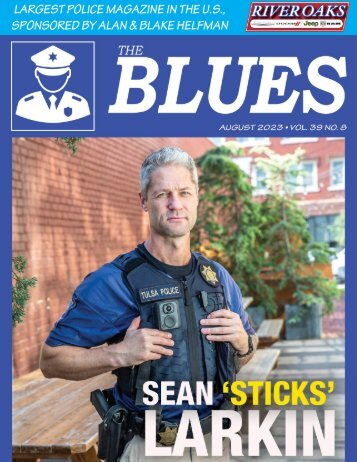
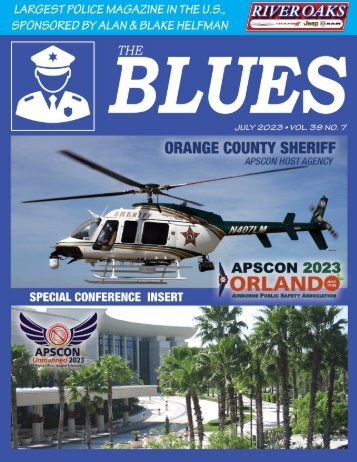
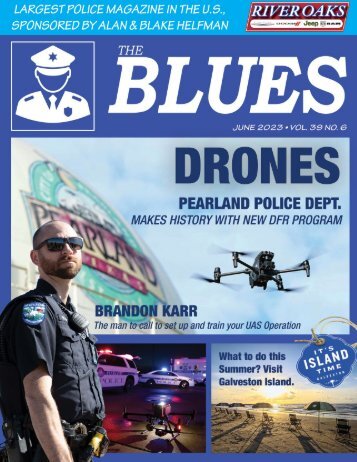
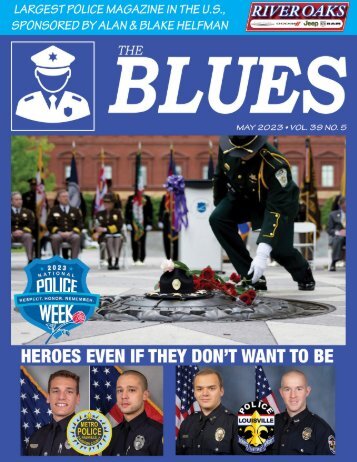
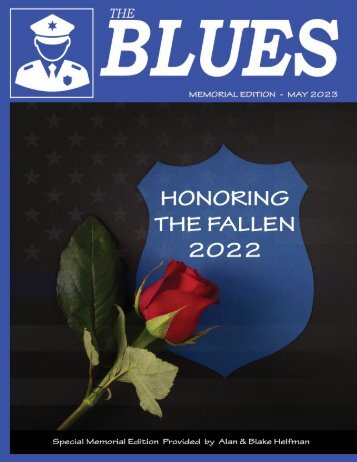
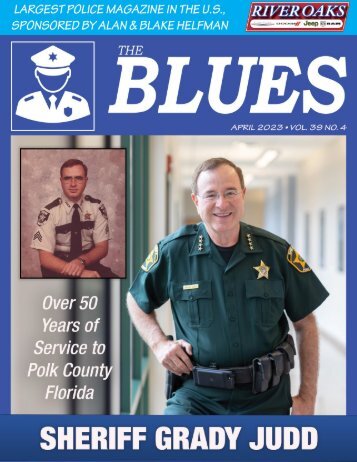
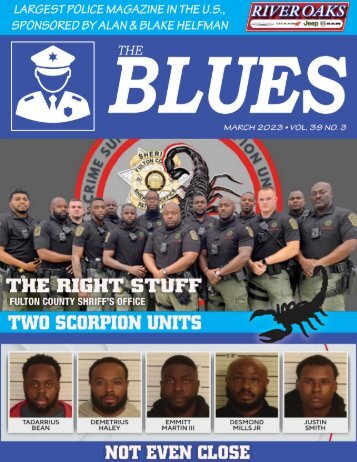
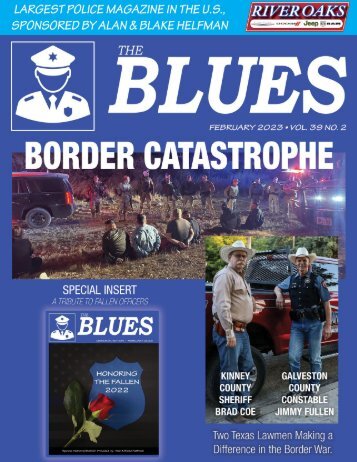
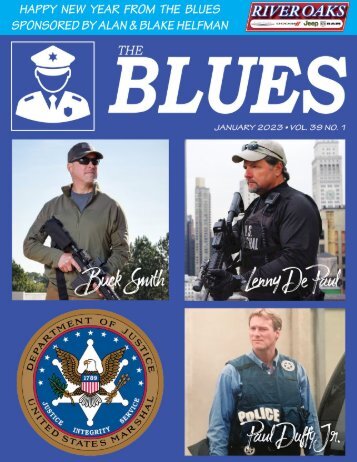


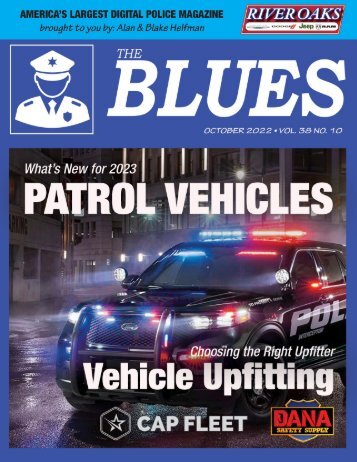
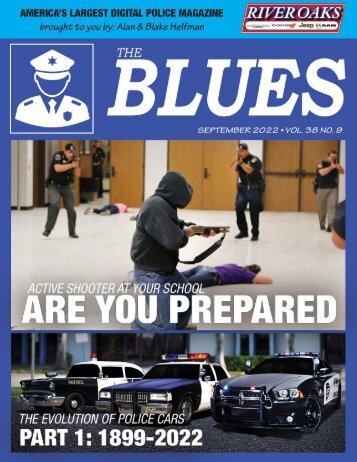
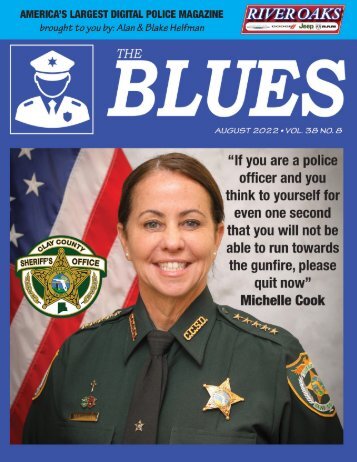
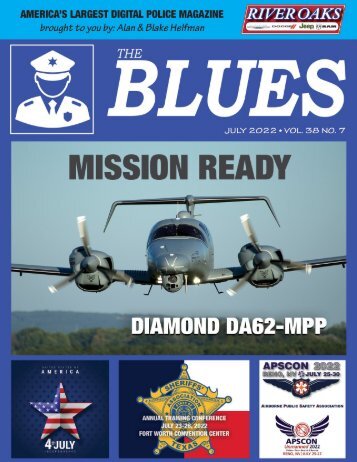
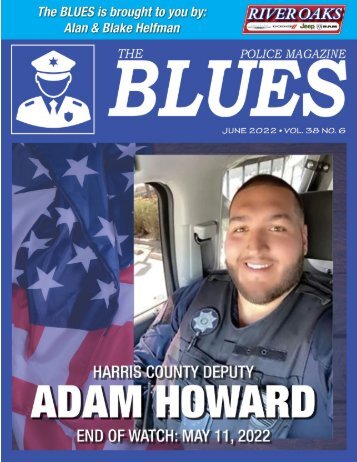
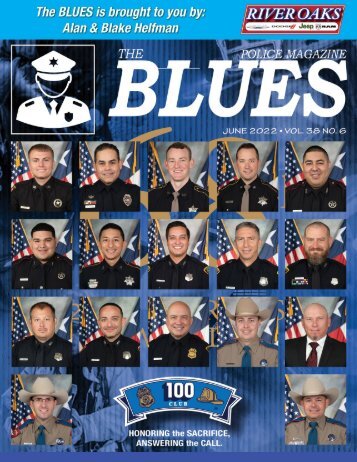
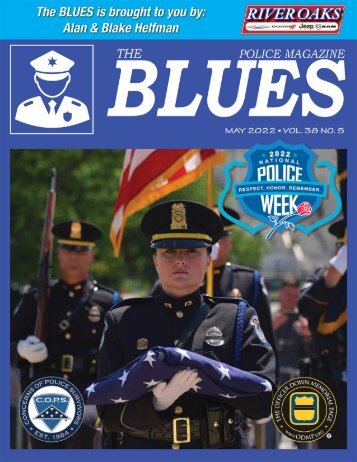
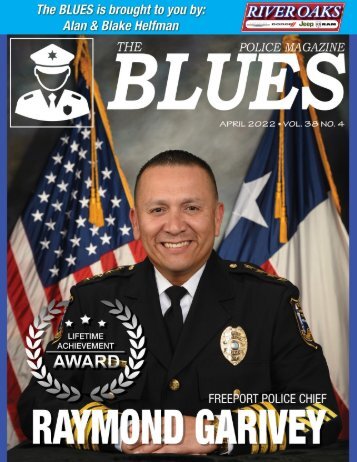
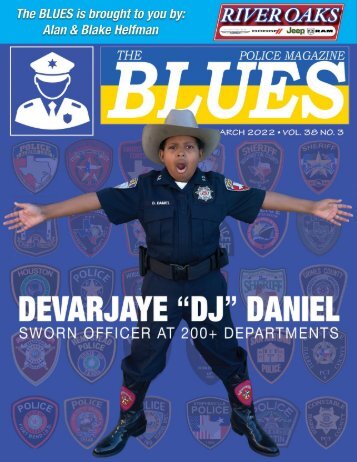
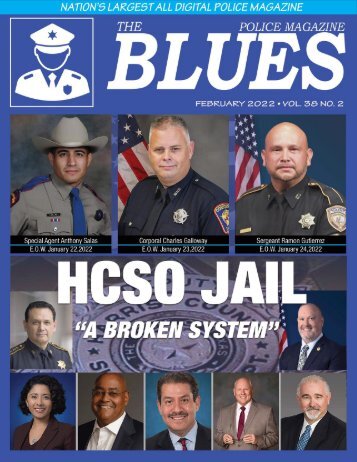
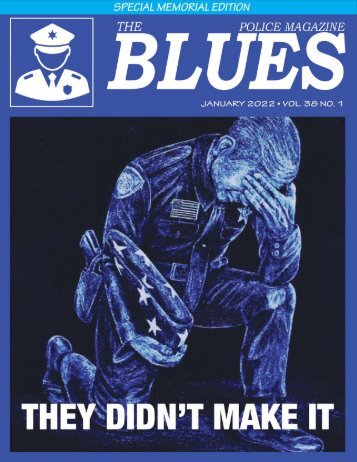
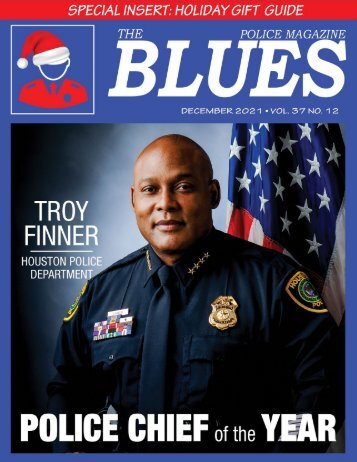
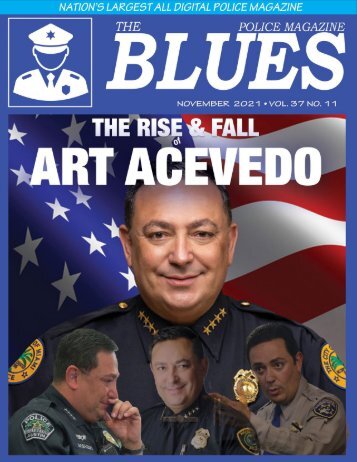
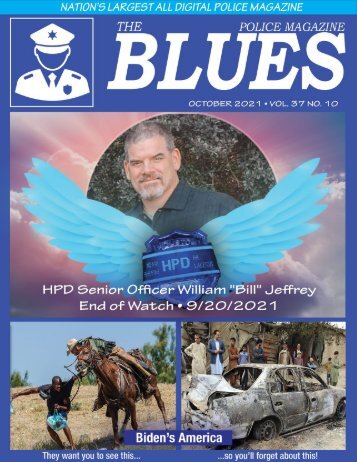
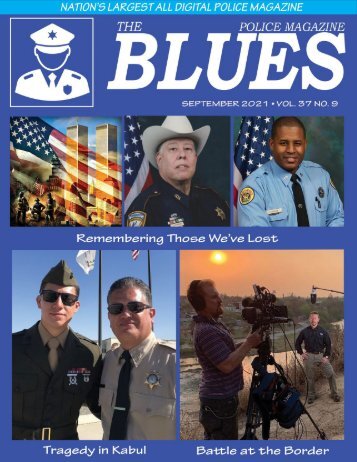

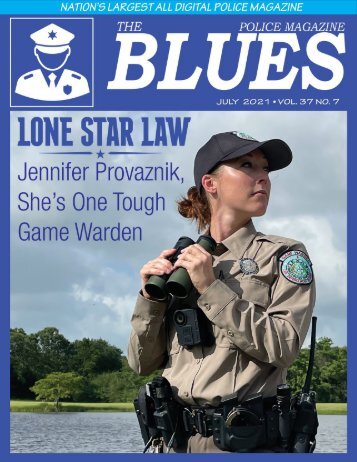

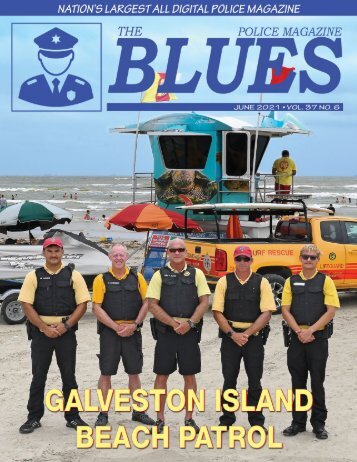

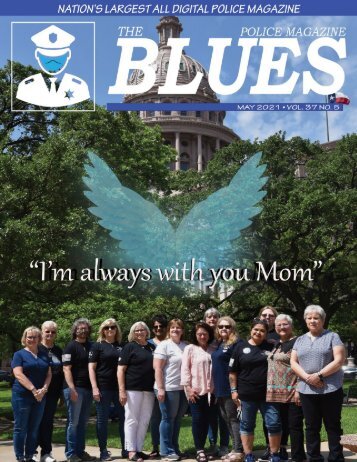
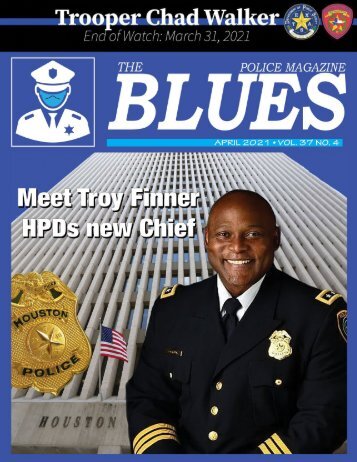
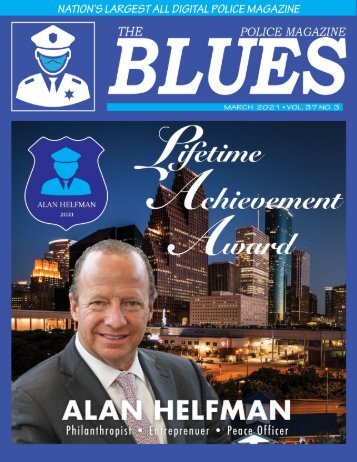
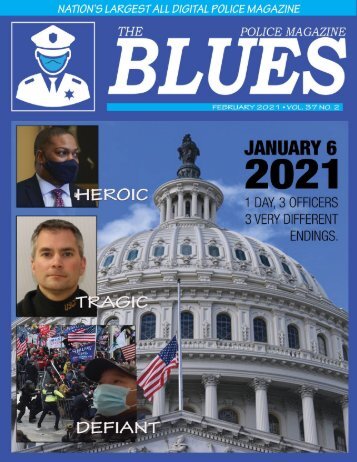

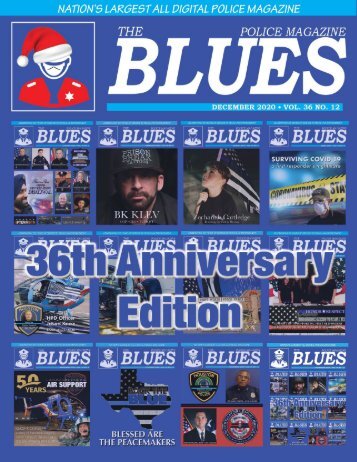
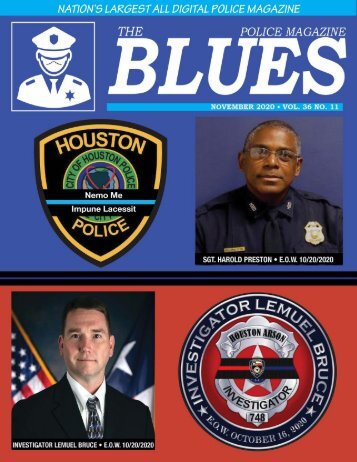
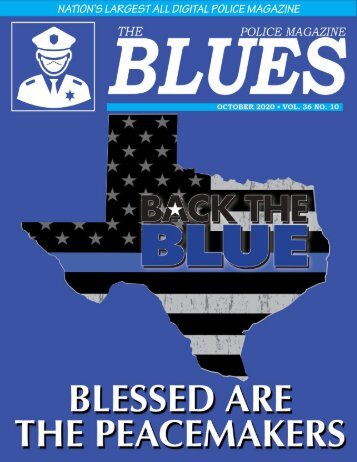
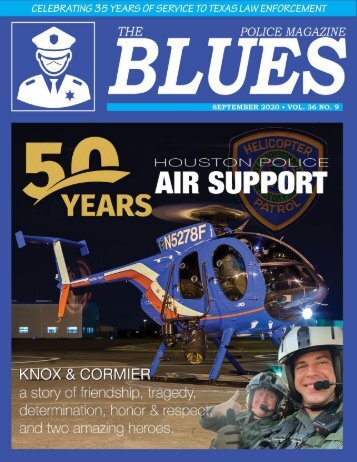
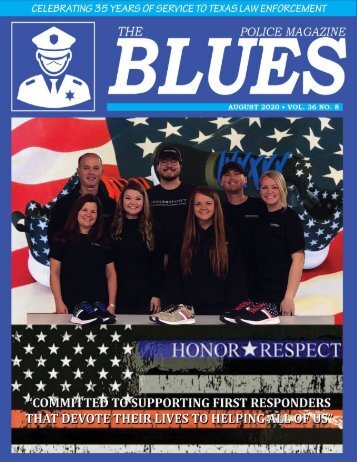
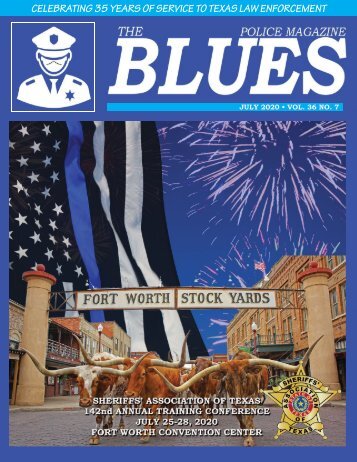
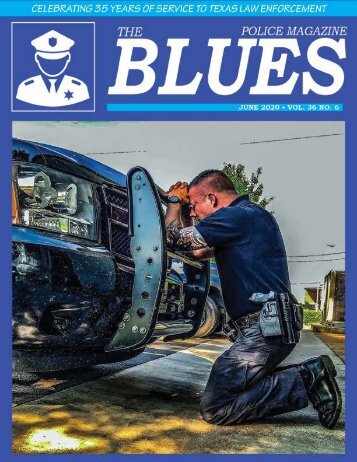
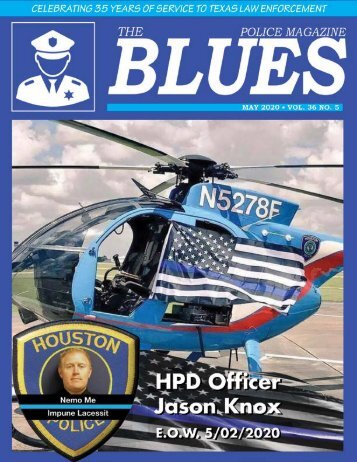
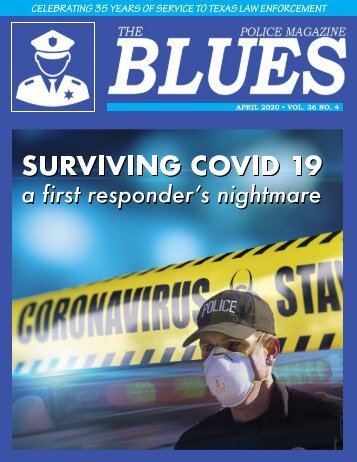
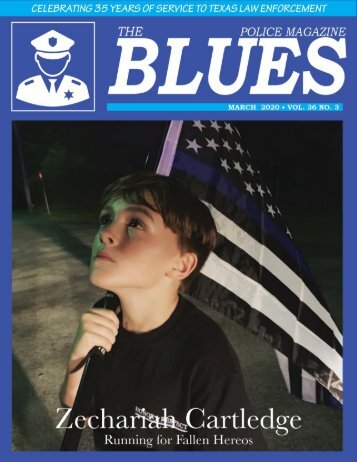
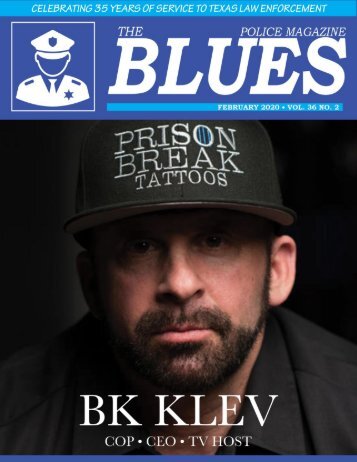
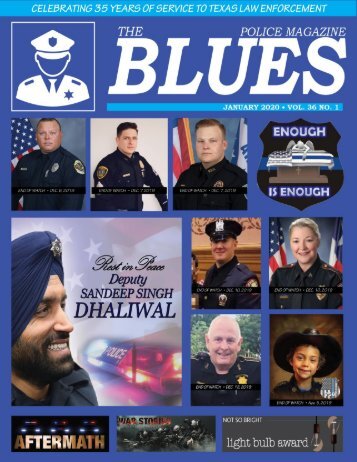
Follow Us
Facebook